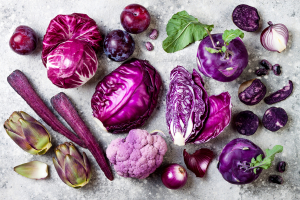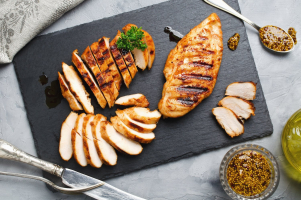Top 9 Best Seeds You Should Be Eating
Seeds contain all of the necessary ingredients to grow into complex plants. They are particularly nutritious as a result of this. Seeds contain a lot of fiber, ... read more...they also have beneficial monounsaturated and polyunsaturated fats, as well as numerous vitamins, minerals, and antioxidants. Seeds can help lower blood sugar, cholesterol, and blood pressure when ingested as part of a healthy diet. The nutritional value and health advantages of the best seeds to eat will be discussed in this article.
-
Chia seeds (Salvia Hispanic), often known as Salba chia or Mexican chia, are edible seeds from a mint family flowering plant. The seeds have a long history in Mexico and Guatemala. In ancient Aztec and Mesoamerican societies, they were an important crop. The seeds were used for therapeutic purposes and were an essential part of the people's meals.
Chia is now cultivated commercially in a number of countries, including Mexico, Guatemala, Peru, Argentina, Australia, and the United States. The seeds are well-known for being nutrient-dense supplements to a balanced diet. It is an excellent source of vitamins, minerals, and powerful antioxidants. Some of these antioxidants include Caffeic acid, Chlorogenic acid, Kaempferol, and Quercetin. These nutrients help provide many significant health benefits such as reduced free radicals, better heart health, improved blood sugar levels, reduced inflammation, healthier weight management, and better bone health.
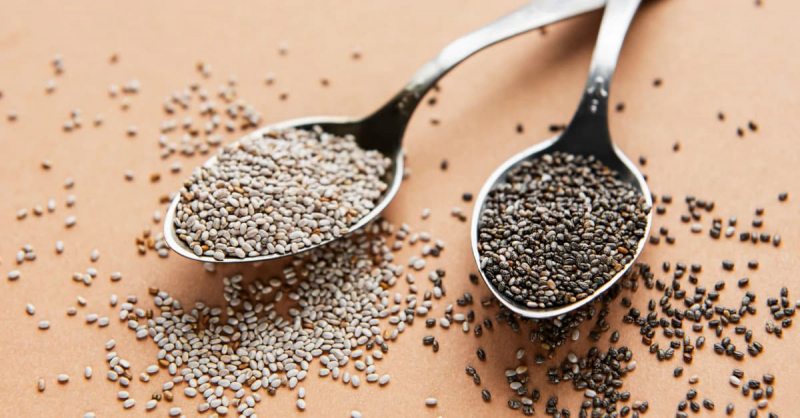
Via: Ayoub's Dried Fruits & Nuts 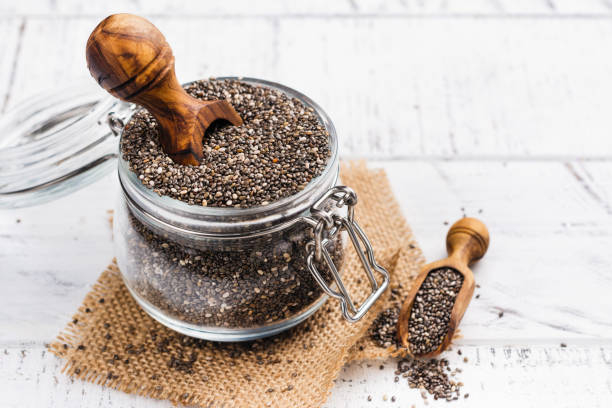
Via: iStock -
Flaxseed is a plant-based food that is high in fiber, antioxidants, and omega-3 fatty acids. It's referred to as a "functional food" because it can be consumed to improve one's health. Flax was a crop grown in ancient Egypt and China. It has been used in Ayurvedic medicine in Asia for thousands of years.
It is now accessible in a variety of forms, including seeds, oils, powder, pills, capsules, and flour. Flaxseed includes nutrients that may be beneficial to your health. Like other plant-based diets, the seeds are high in antioxidants. Eliminating chemicals known as free radicals from the body can aid in the prevention of disease. Natural processes and environmental influences generate free radicals. Excess free radicals in the body can cause oxidative stress, which can lead to cell damage and disease. Antioxidants aid in the elimination of free radicals from the body. Lignans, which appear to have antioxidant qualities, are abundant in flaxseed. Some experts believe that this seed is almost 800 times richer in lignans than most other foods, according to Trusted Source. Some other benefits of flaxseeds can be mentioned as a dietary supplement to prevent constipation, diabetes, high cholesterol, heart disease, cancer, and several other conditions.
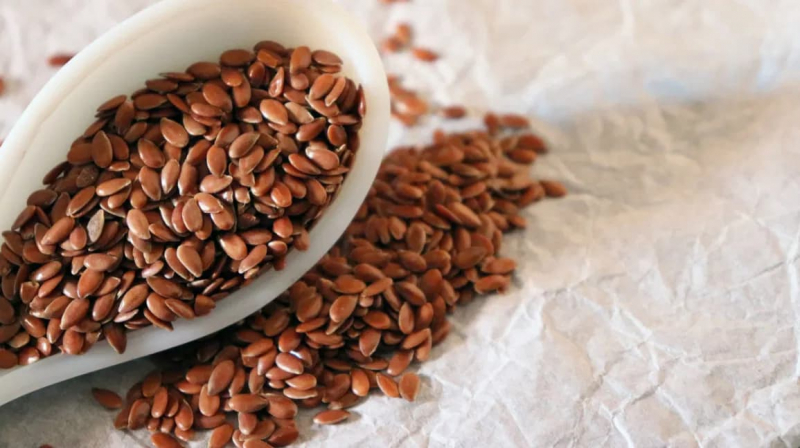
Via: Healthline 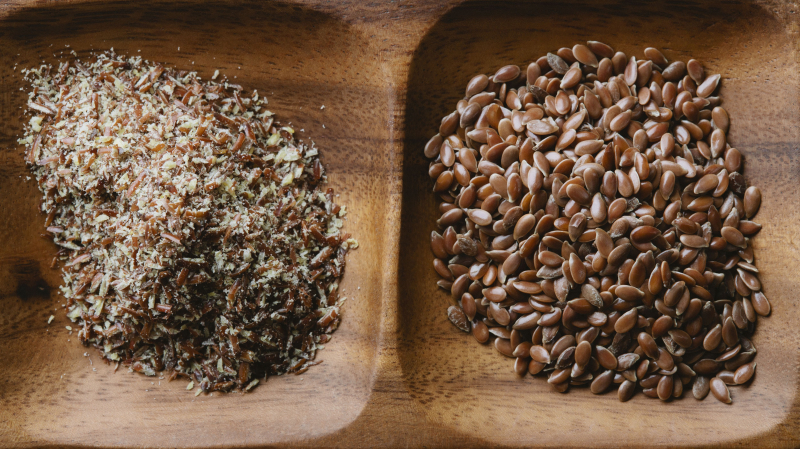
Via: Verywell Fit -
Hemp can be seen by some people as a controversial plant, it is a Cannabis sativa cultivar cultivated for its fiber rather than its psychotropic properties. Many hemp strains lack the psychoactive effects associated with cannabis. For thousands of years, this variety of industrial hemp has been used as a fiber supply, an oil source, and a vital source of nourishment.
Hemp seeds are the most significant portion of the plant in terms of nutrients. The seeds can be consumed whole or dehulled. They can also be made into milk that tastes like soy milk. Hemp seed oil can be used in the same way as olive oil in the kitchen. The seed includes vitamins, minerals, and compounds that can provide considerable health advantages. Hemp oil, for example, is high in vitamin E, which is good for keeping your immune system healthy. It also functions as an antioxidant, assisting in the reduction of free radicals in the body that can cause cell damage. Furthermore, genuine hemp may bring health benefits such as the reduced risk of heart disease, and reduced symptoms of PMS.
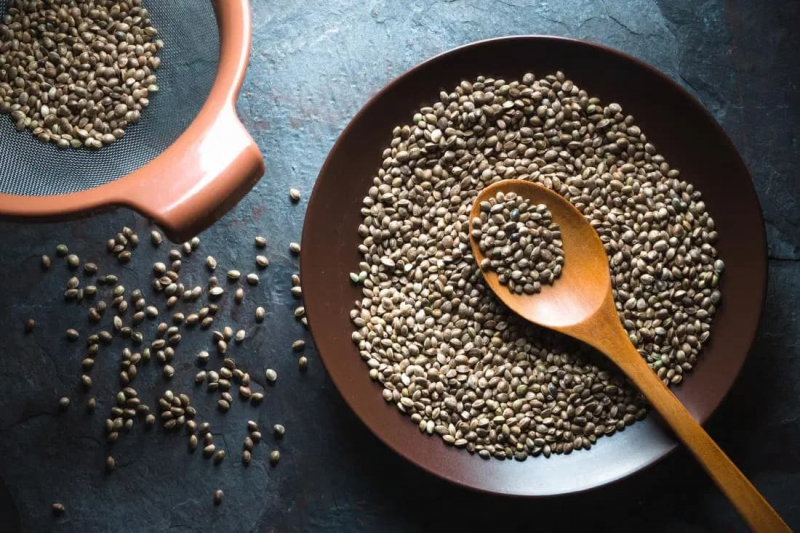
Via: Medical News Today 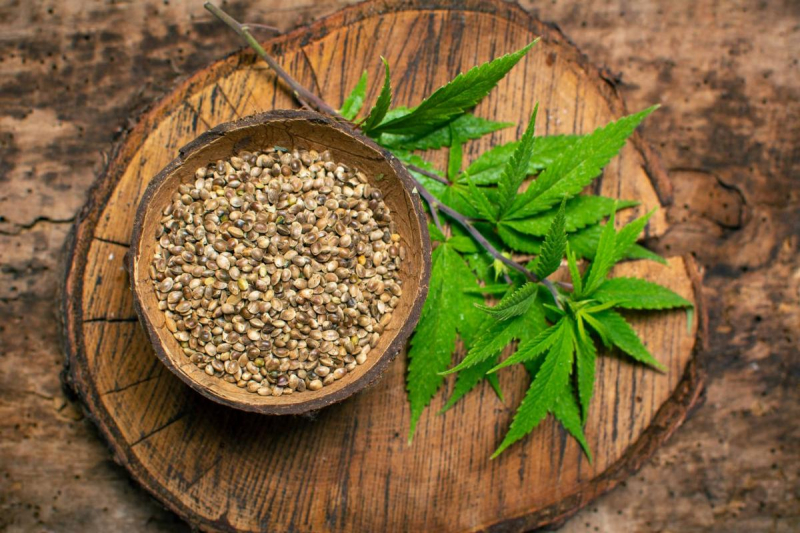
Via: Fine Dining Lovers -
In many Asian cultures, the perilla seeds are a staple diet. It's also known as shisho or beefsteak (the leaf), and the seed has a larger fatty acid content – up to 40-45 percent oil – than chia seeds, which have a still-impressive 30-32 percent. The omega-3 to the omega-6 fatty acid ratio in perilla seeds is 6:1, which is the greatest ratio of 3 to 6 of any known seed. Of all the supersedes, perilla and black cumin seeds have the highest total phenolic compounds or health-promoting phytonutrients. That’s not surprising since both of these seeds are black or dark brown and typically a deep pigment is a cue of beneficial polyphenols inside. These seeds are also rich in fiber, folate, magnesium, iron, copper, and zinc.
It is more delicate than chia seeds, which can stay stable for a long time due to their high lipid content. Because the seeds must be crushed sooner, you're more likely to discover already pressed perilla seed oil or supplements rather than whole seeds at your local health-conscious market (although some Asian markets do carry the seeds as well as the perilla seeds powder).
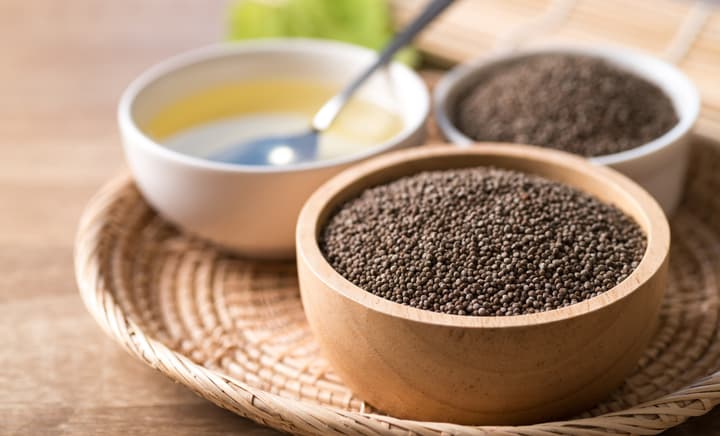
Via: NutraIngredients-Asia.com 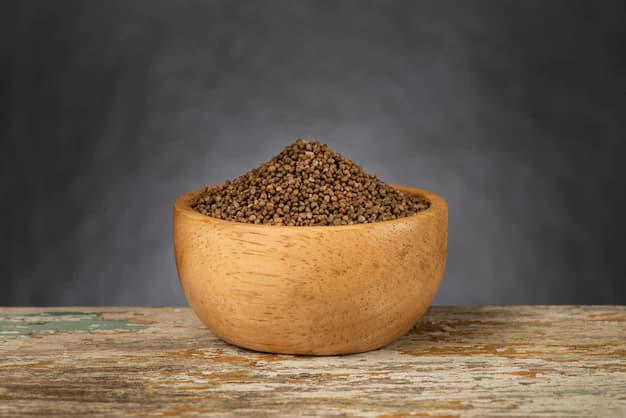
Via: Freepik -
Pumpkin seeds have a lengthy history of nutritious use extending back over 7,500 years in Mexico's Oaxaca Highlands. They've been used as a folk medicine in numerous cultures to treat: urinary tract and bladder infections, high blood pressure and blood sugar, kidney stones, and parasites like worms. These seeds offer an outstanding nutrient profile that promotes many elements of your health, according to modern science. They're high in protein, unsaturated fatty acids, vitamins, and minerals, all of which help to lower the risk of chronic diseases like cancer. It can be purchased raw, spouted, or roasted at most grocery stores and health food stores. They're also known as pepitas when marketed in their green shells.
Pumpkin seeds are a rich source of many nutrients, with a modest amount providing significant levels of vital vitamins and minerals. Because they are heavy in calories, you should restrict your quantities to maintain a healthy weight. You can add a handful to your meal to reap the following health benefits: anti-inflammatory effects, lower risk of diabetes, anti-cancer properties, and healthy heart function.
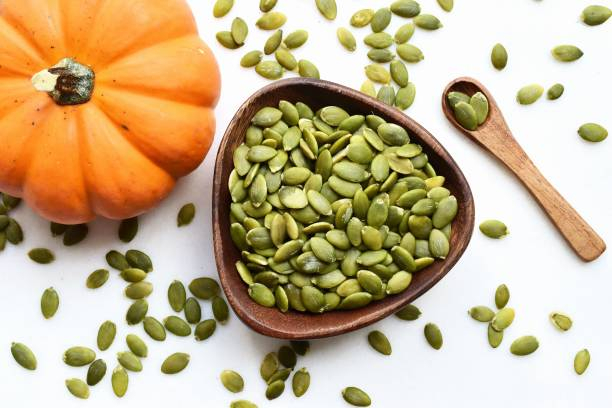
Via: iStock 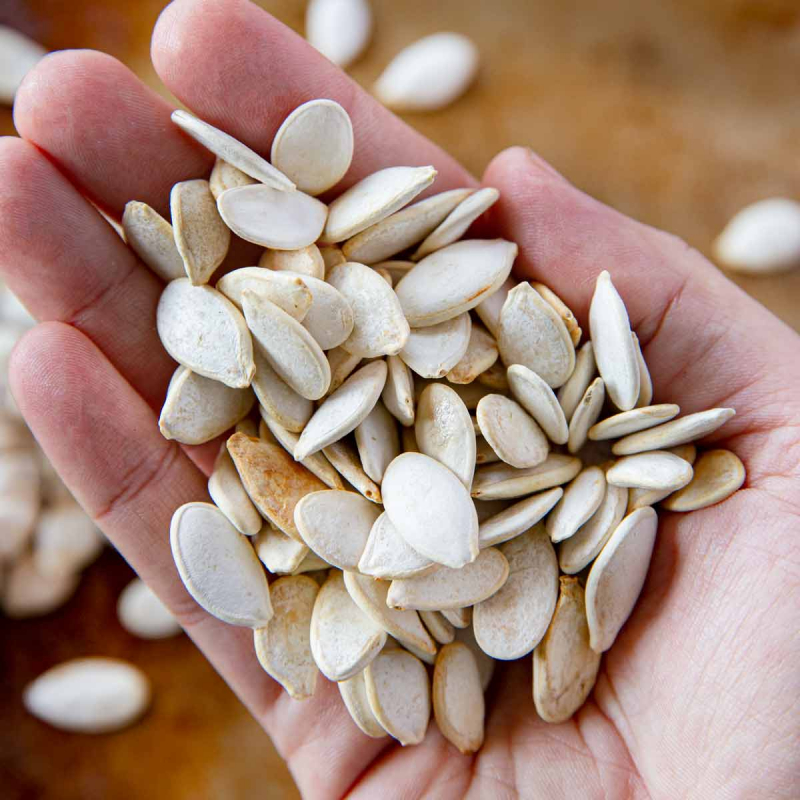
Via: Dinner, then Dessert -
Pomegranate, also known as Punica granatum, Granada, Fleur de Grenade, or Anardana, has long been used as a food and medicinal. Punicic acid, a fatty acid with beneficial qualities, is abundant in its seeds. They also contain 17-alpha-estradiol and other estrogen-like compounds that may protect against cancer, particularly breast cancer. One cup of pomegranate seeds provides 140 calories, 32 grams of carbs, 24 grams of sugars, 6 grams of fiber, 2 grams of protein, 2 grams of fat, 30 percent of the (DV) daily value of vitamin C, 4 percent of the DV of calcium, 4 percent of the DV of iron.
Vitamins, minerals, and phytochemicals abound in pomegranate seeds. According to a 2016 research paper published in Advances in Nutrition, ellagic acid, one of the most abundant antioxidants in this fruit, may promote metabolic health and prevent obesity. This natural ingredient decreases the expansion of white adipose tissue and fights inflammation, making weight loss simpler.
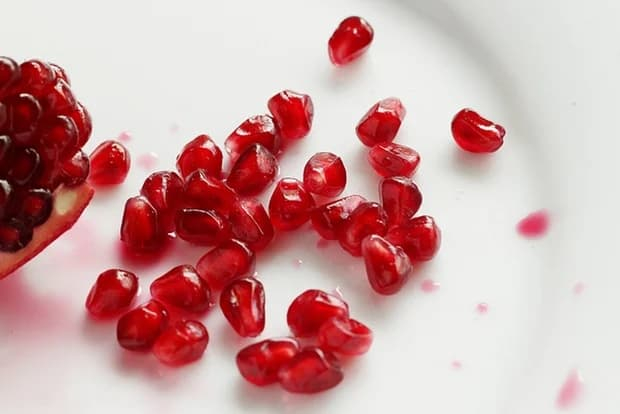
Via: Washingtonian 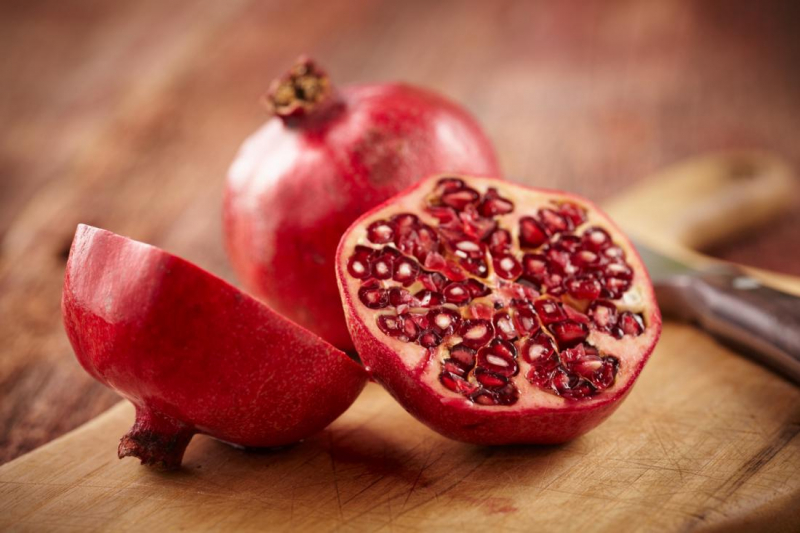
Via: Medical News Today -
Quinoa has lately gained popularity in the United States, although local peoples in the Andes Mountains of South America have been cultivating it for 5,000 years. Quinoa flakes are flattened grains that retain all of the nutrients of quinoa but cook faster. It is so healthy that NASA has used it to feed astronauts on long-term space trips because it has more protein than any other grain.
Quinoa is a complete protein, which means it includes all of the essential amino acids, unlike most plant-based diets. The building blocks of proteins that make up your muscles, bones, skin, and blood are amino acids. The nine "essential" nutrients must be taken from food on a daily basis because your body cannot make or store them, and quinoa contains all nine. Whole grains, such as quinoa, should make up at least half of your diet, according to the USDA. The majority of the fiber, iron, and vitamins found in whole grains have been removed from refined grains. Consuming whole grains can help reduce your risk of diabetes, heart disease, and cancer.
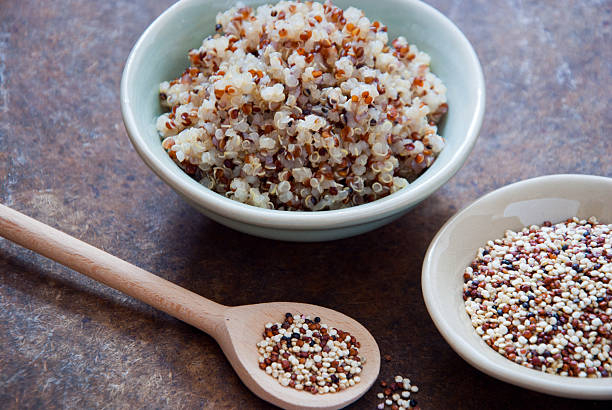
Via: iStock 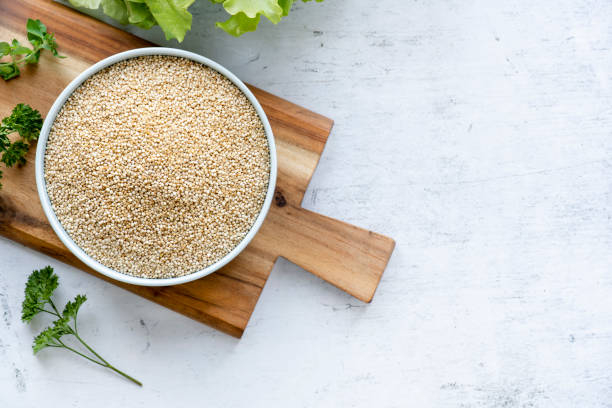
Via: iStock -
Whole grains, such as quinoa, should make up at least half of your diet, according to the USDA. The majority of the fiber, iron, and vitamins found in whole grains have been removed from refined grains. Consuming whole grains can help reduce your risk of diabetes, heart disease, and cancer. While sunflower seeds are pretty high in fat for a one-ounce serving, they are made of mostly mono- and polyunsaturated fats, which are a great anti-inflammatory and heart-healthy source of fats that your body needs. Additionally, they are a good source of fiber and protein, adding a nice nutrition boost to your favorite granola bars, salads, and other recipes.
It is also almost negligent in sodium on its own, but many packaged sunflower seed products are loaded with salt - one popular brand packs 79% of your daily sodium limit per serving. It's important to be mindful of the nutrition label whenever you're stocking up on sunflower seeds to use for snacking or in a recipe.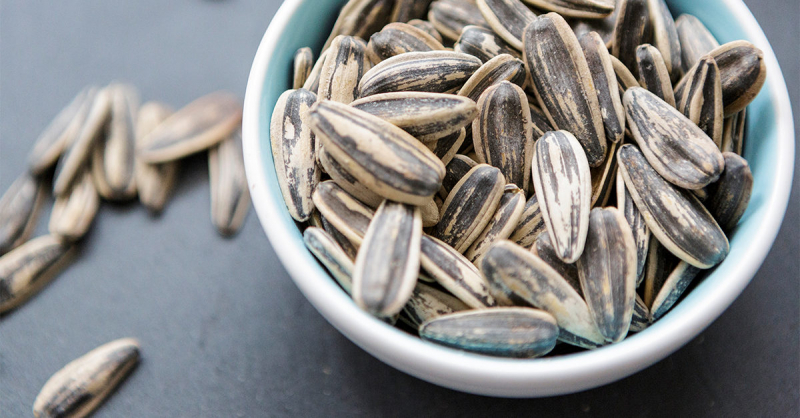
Via: Healthline 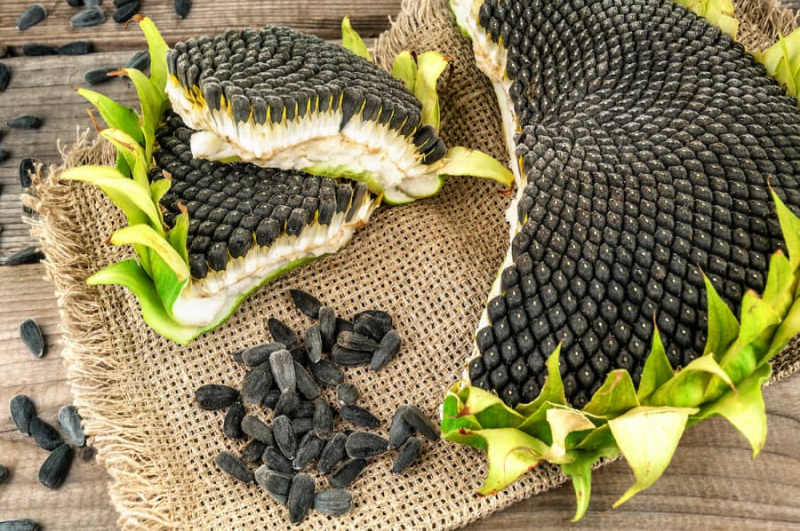
Via: MasterClass -
Sesame seeds (Sesamum indicum) are edible seeds from a Sesamum genus plant native to India and Africa. They have been farmed for almost 3,500 years and are considered the world's oldest oilseed crop. These seeds have a nutty flavor and are either shelled or unshelled. They're widely used as a topping for bread and grain items, crackers, sushi, cakes, soups, and as fish and meat breeding. Sesame oil, extracted from the seeds, is a nutrient-dense oil with laxative and emollient effects.
According to the USDA, these seeds are high in natural oils, lignans, antioxidants, protein, dietary fiber, and vitamins and minerals such as calcium, iron, potassium, phosphorus, magnesium, B vitamins, and vitamin E. These tiny seeds may also be high in fat-burning polyphenols like sesamin and sesamol, as well as powerful amino acids like tryptophan. The wide range of health benefits of these seeds is: aid in skincare, improve hair health, elevate heart health, manage diabetes, improve oral health, reduce inflammation, and boost metabolic function.
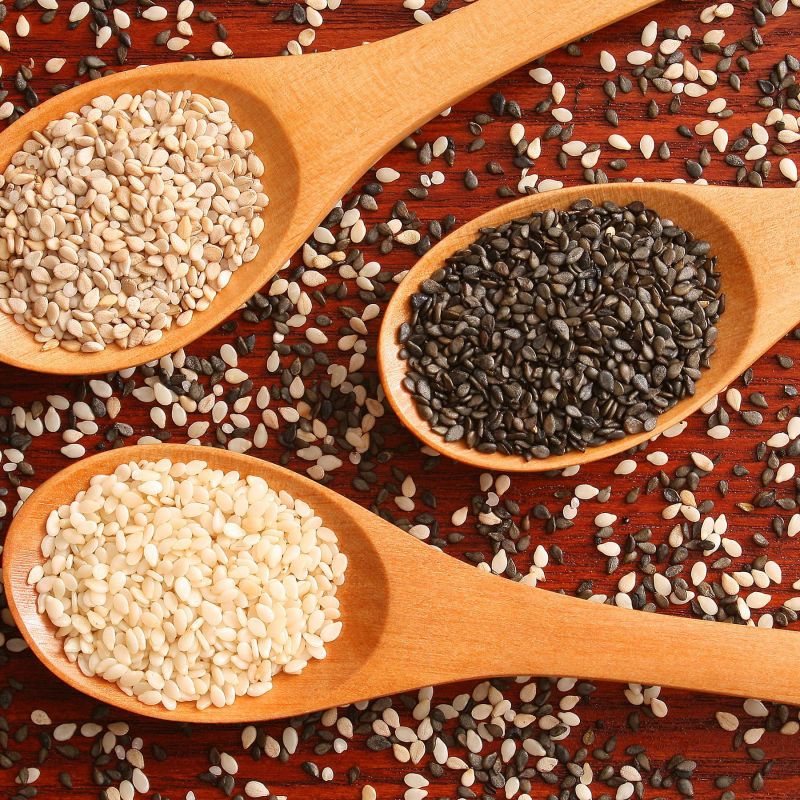
Via: The Spruce Eats 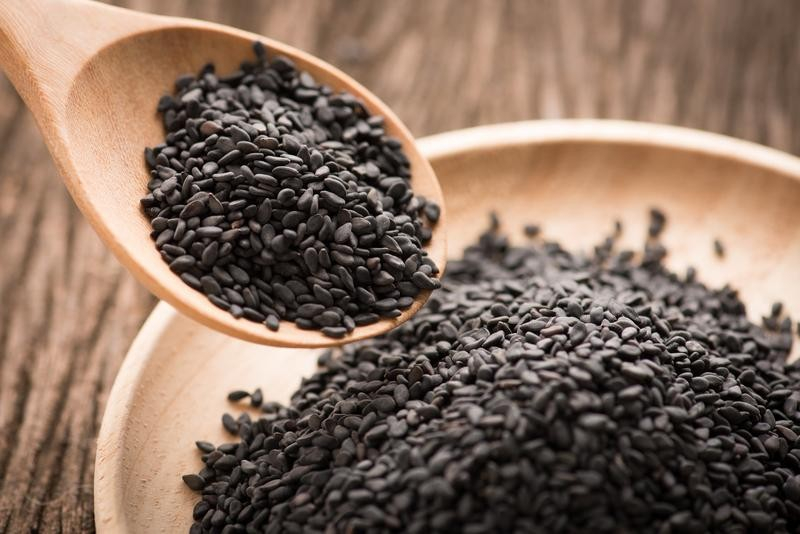
Via: iStock











